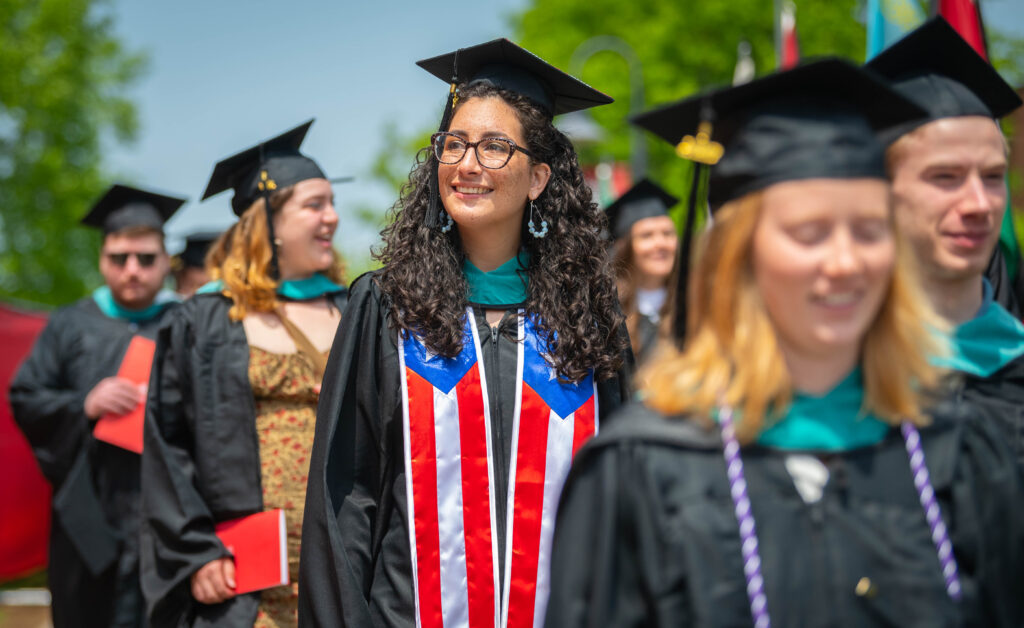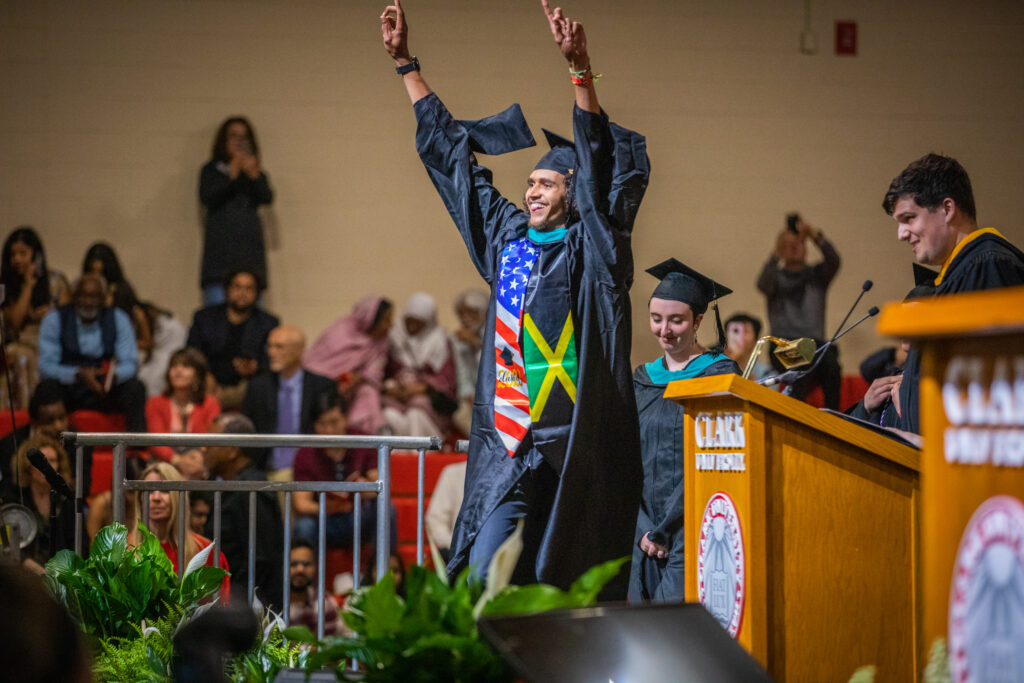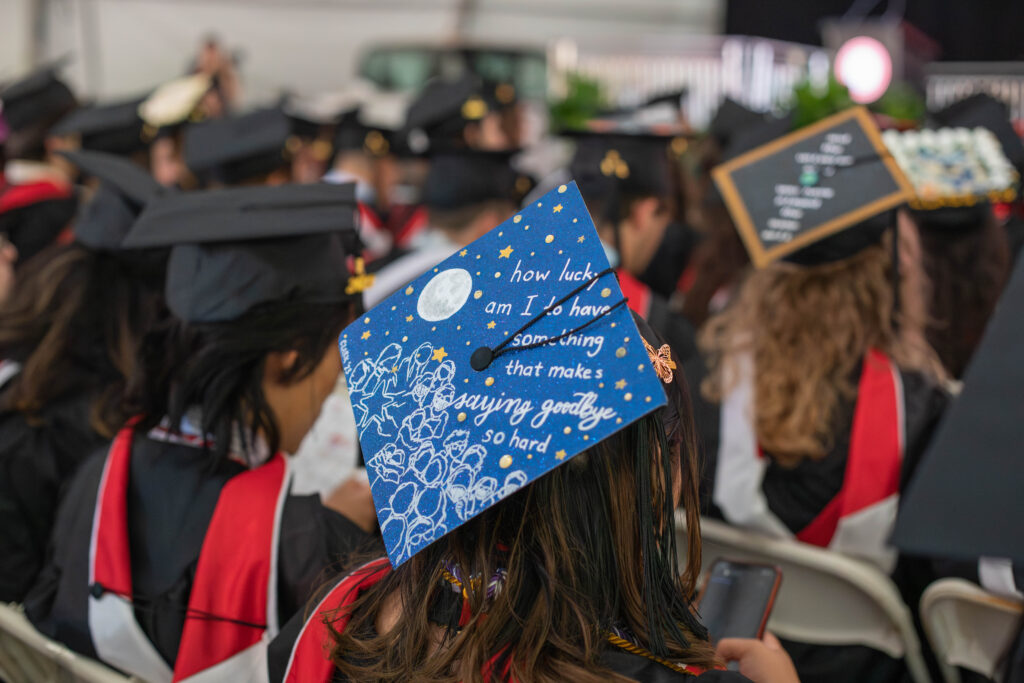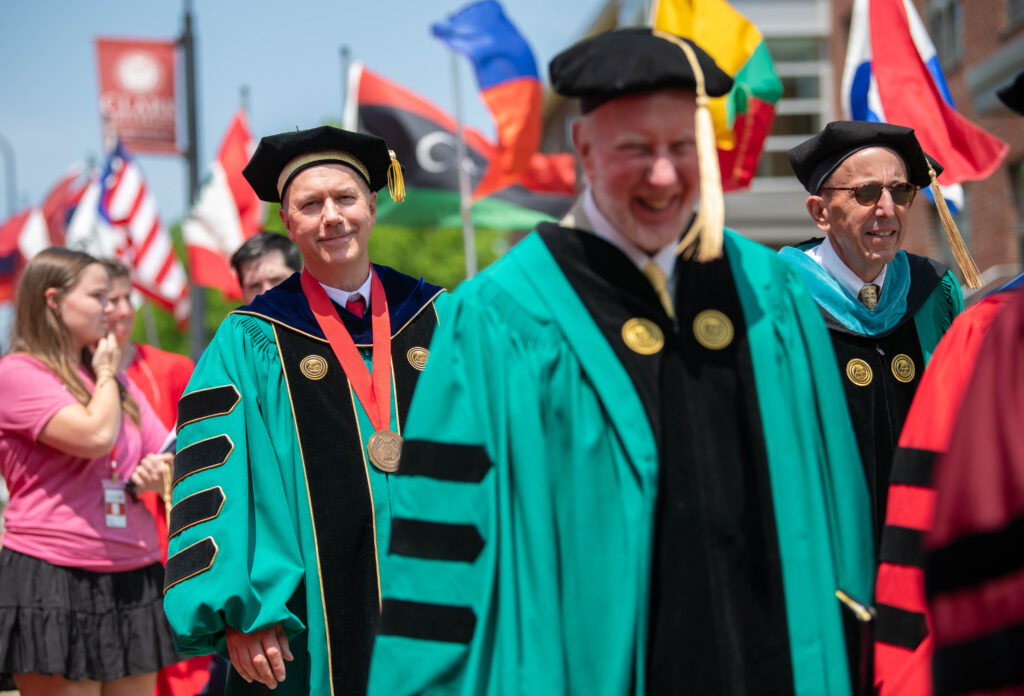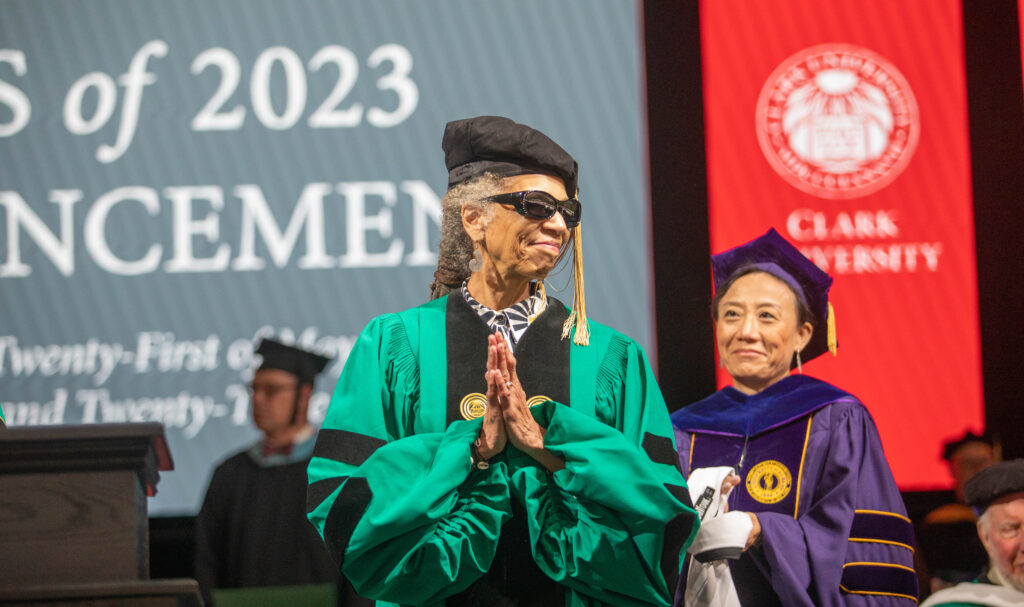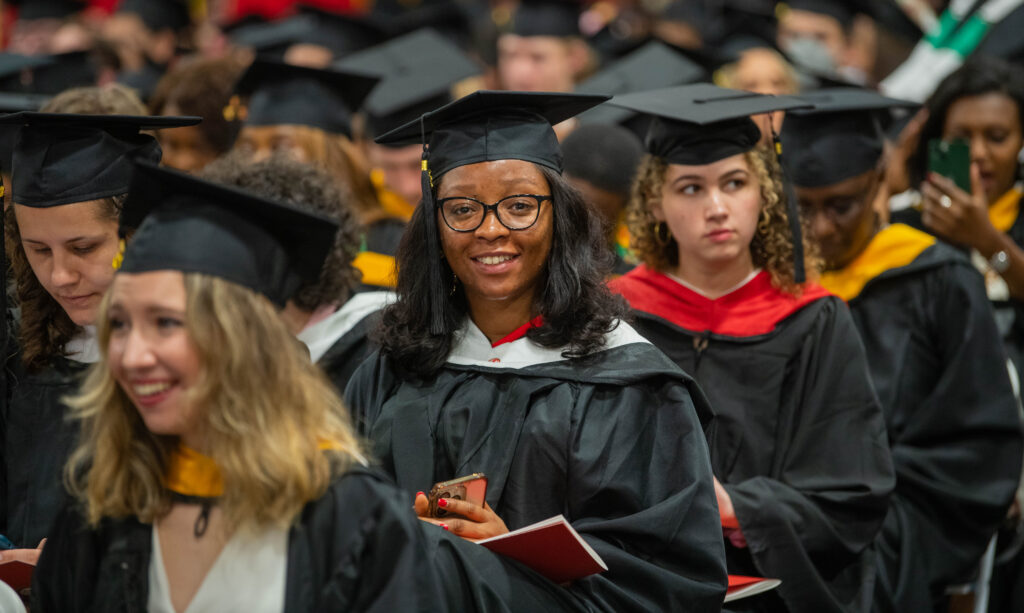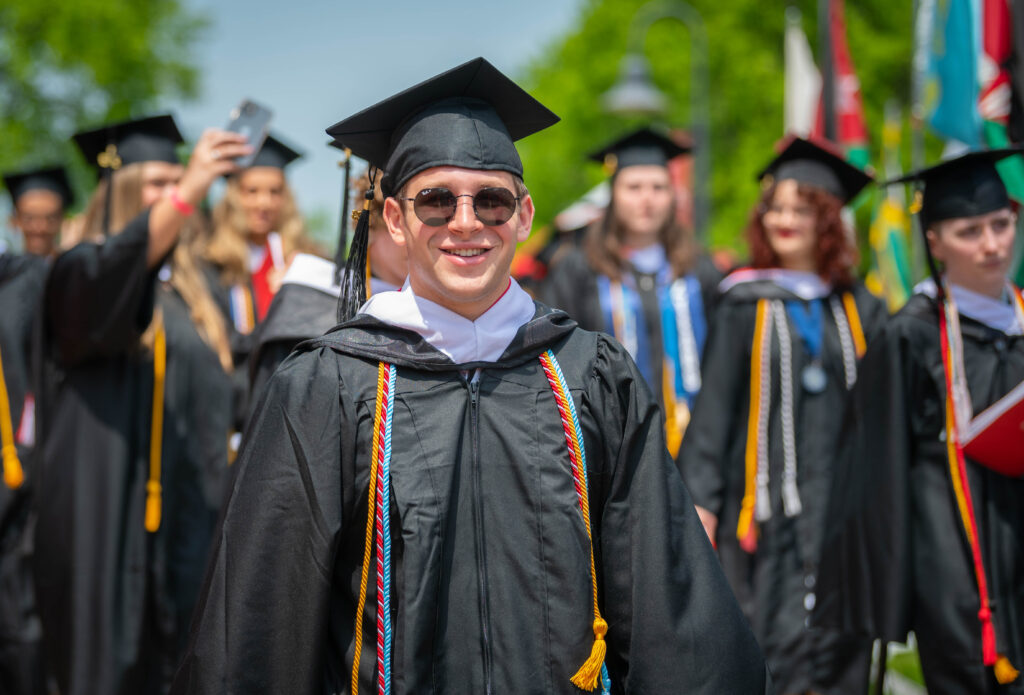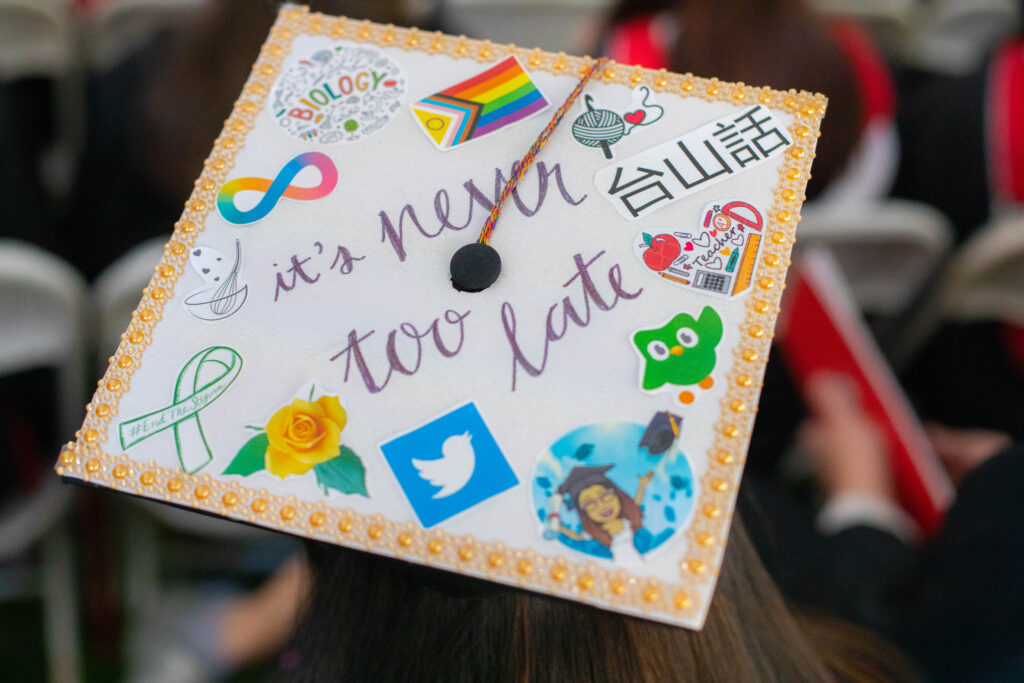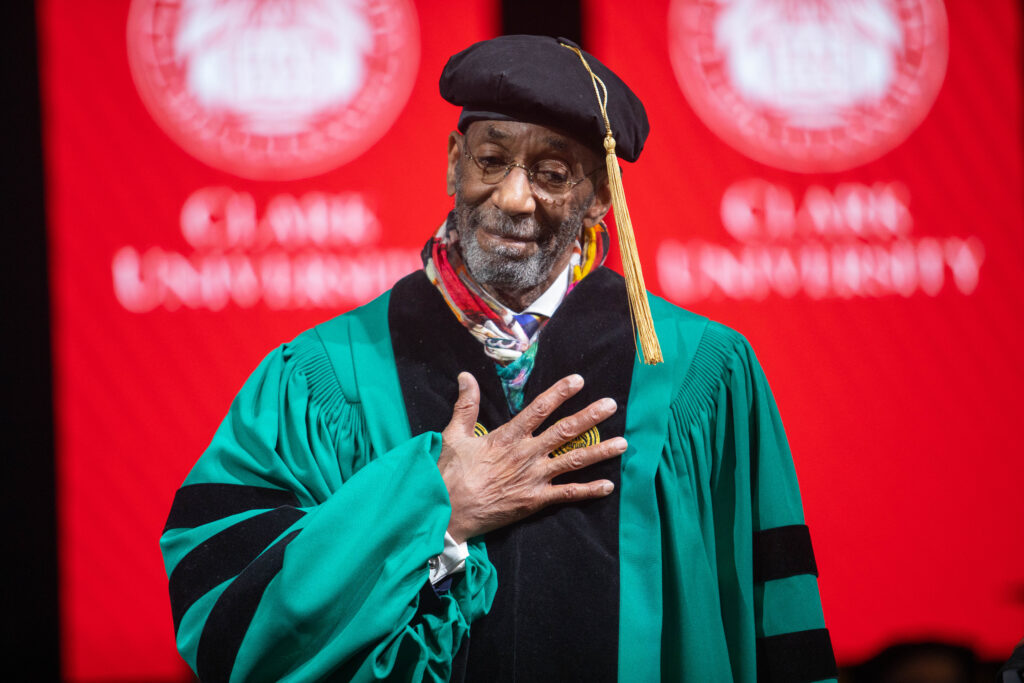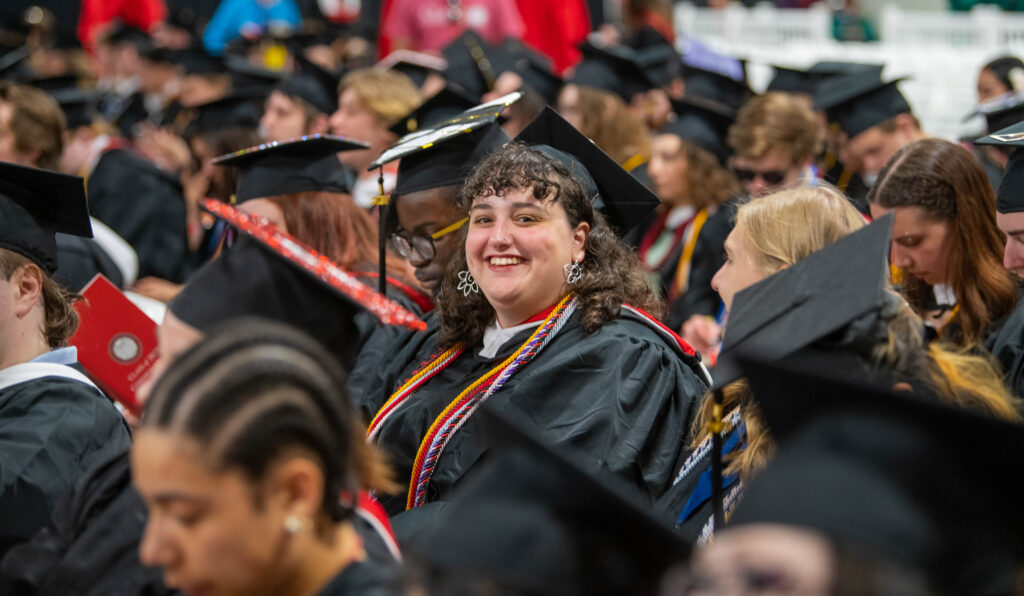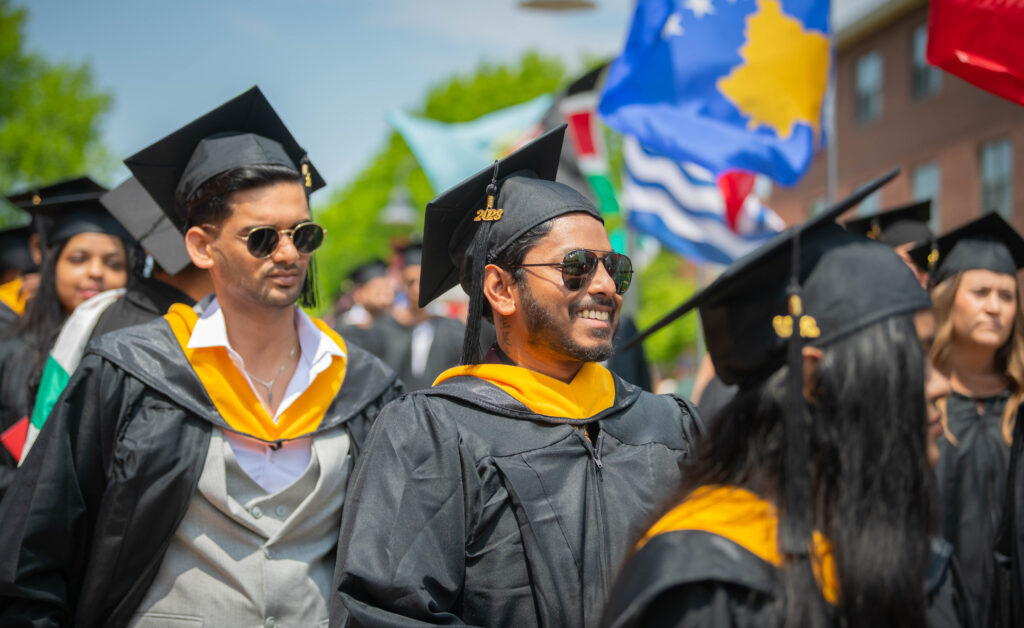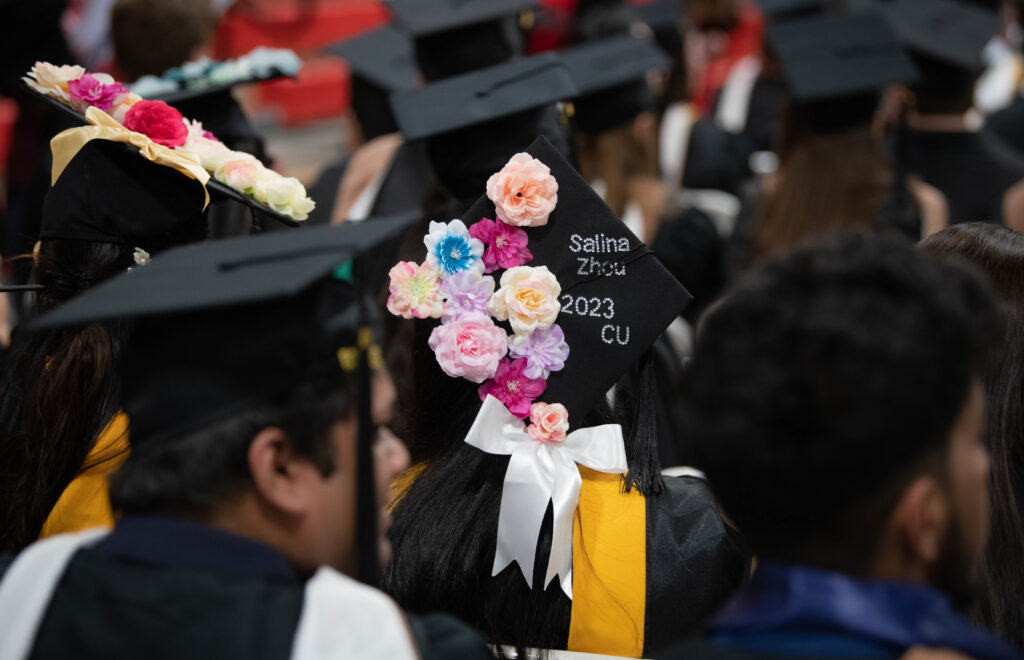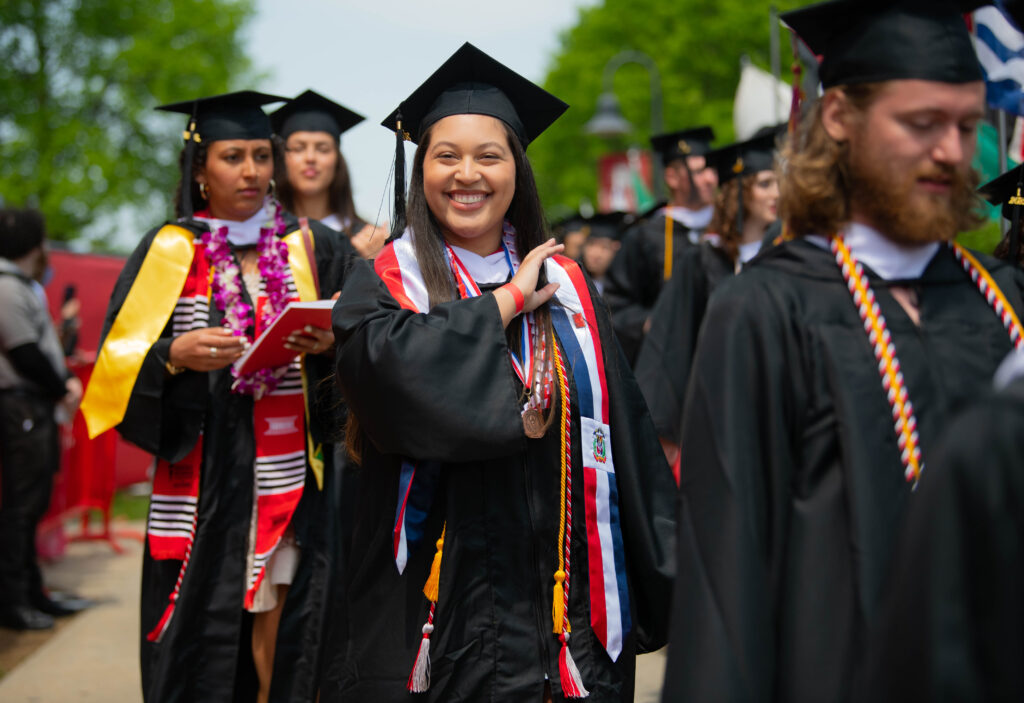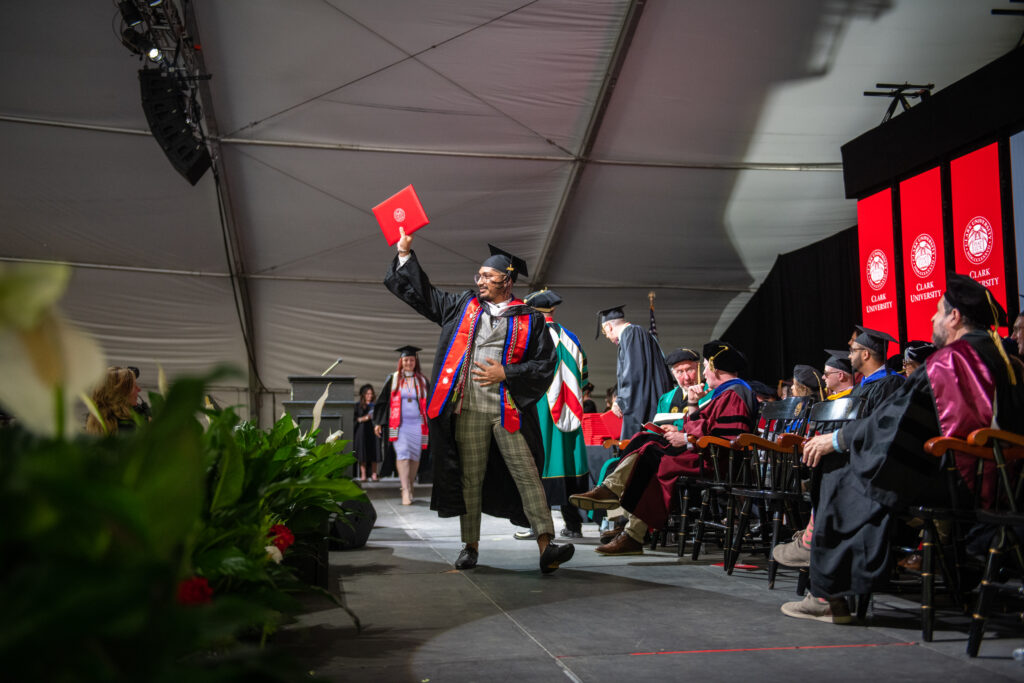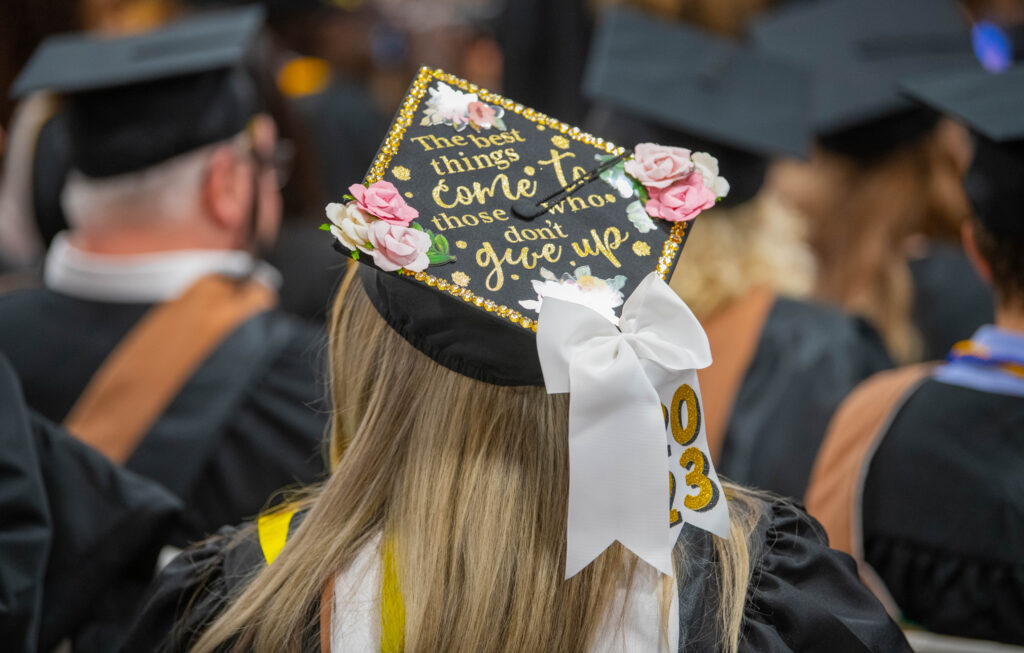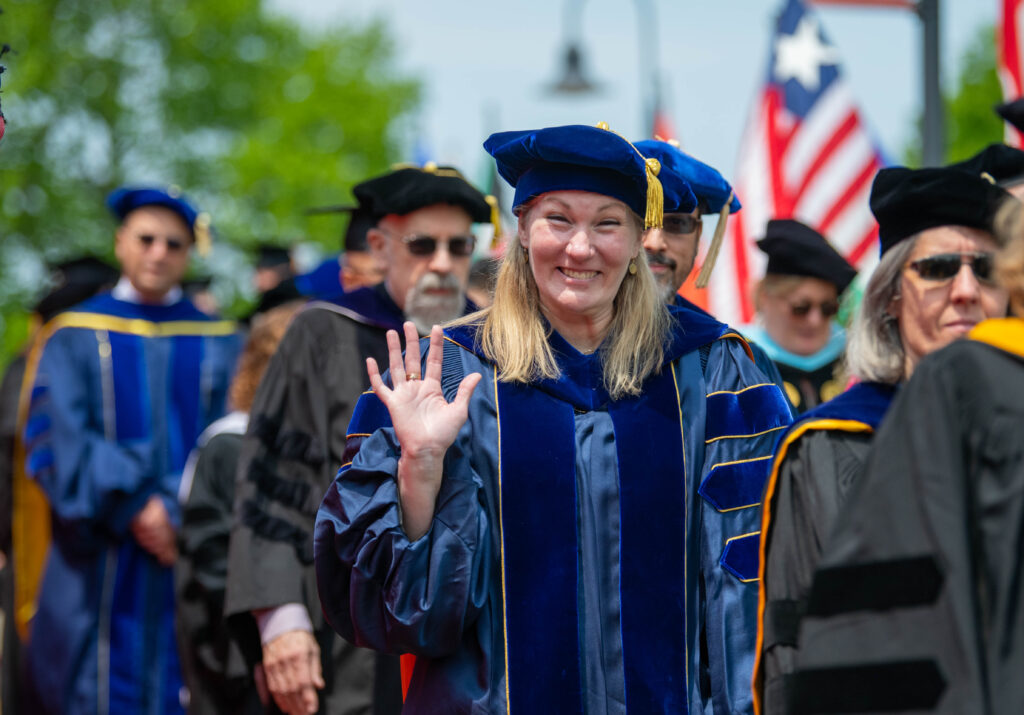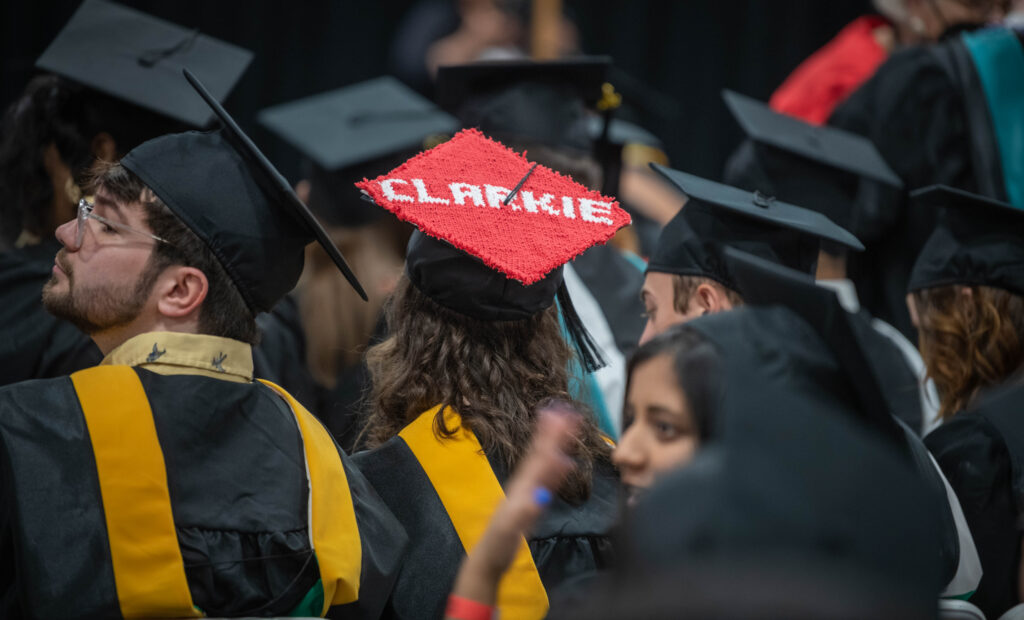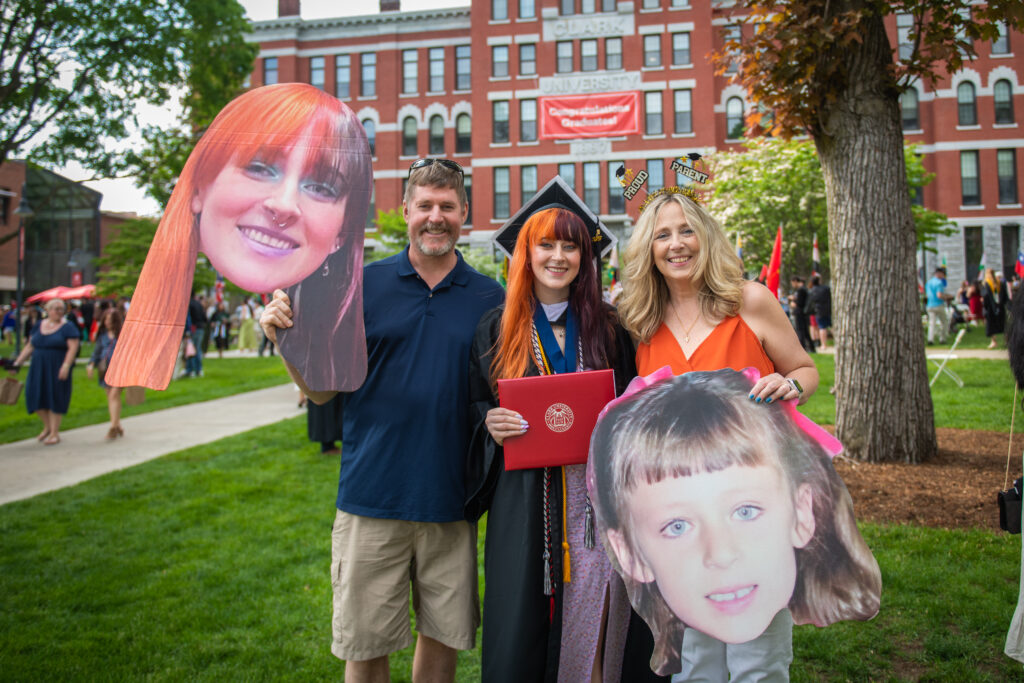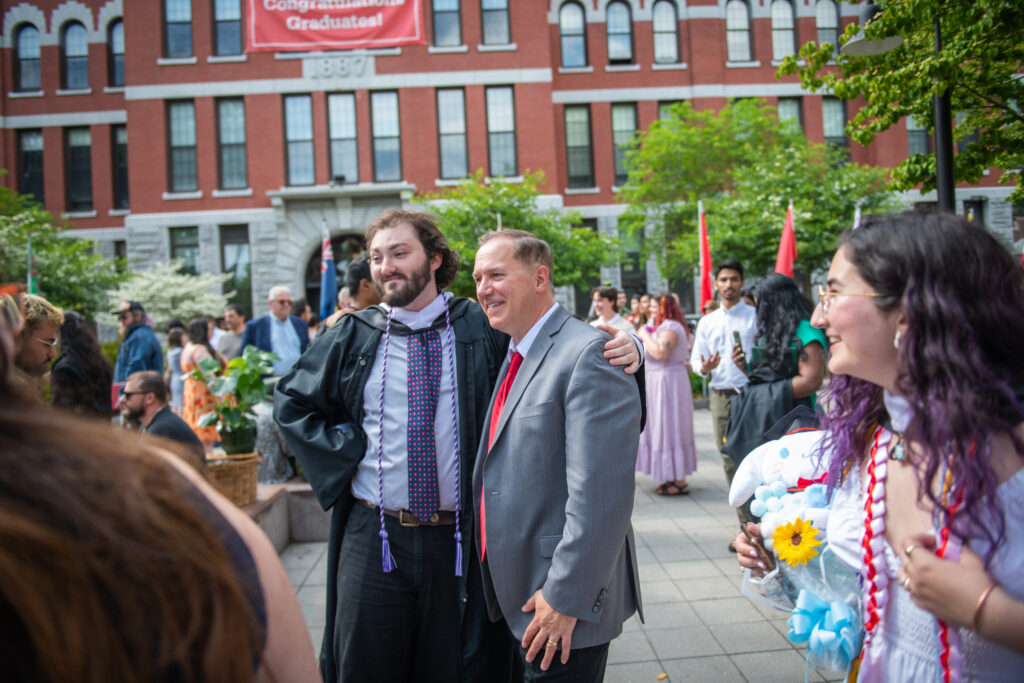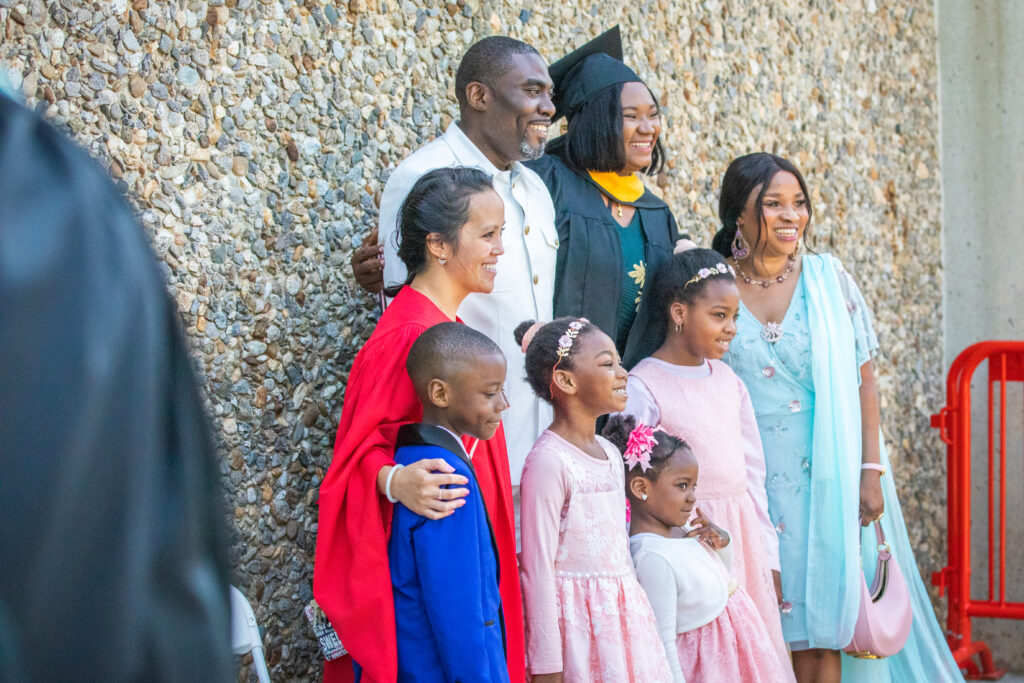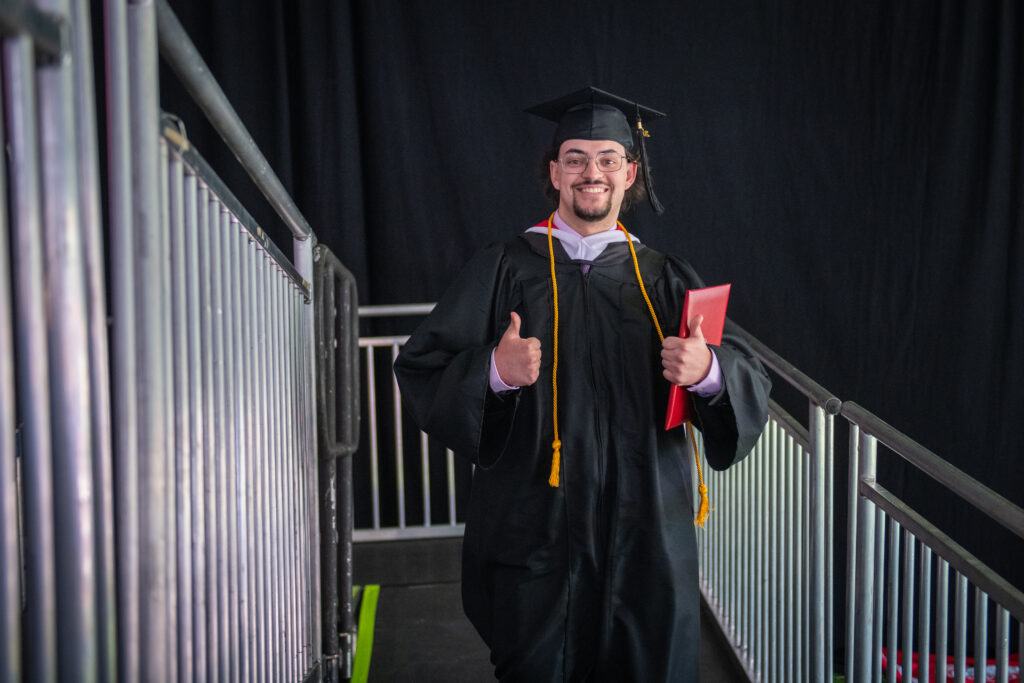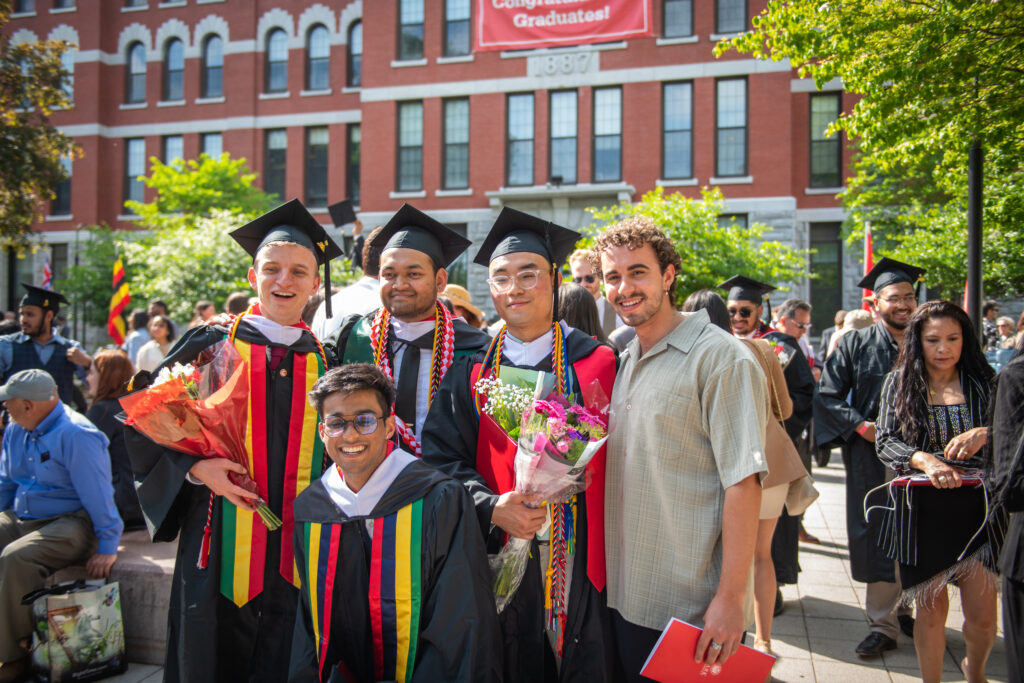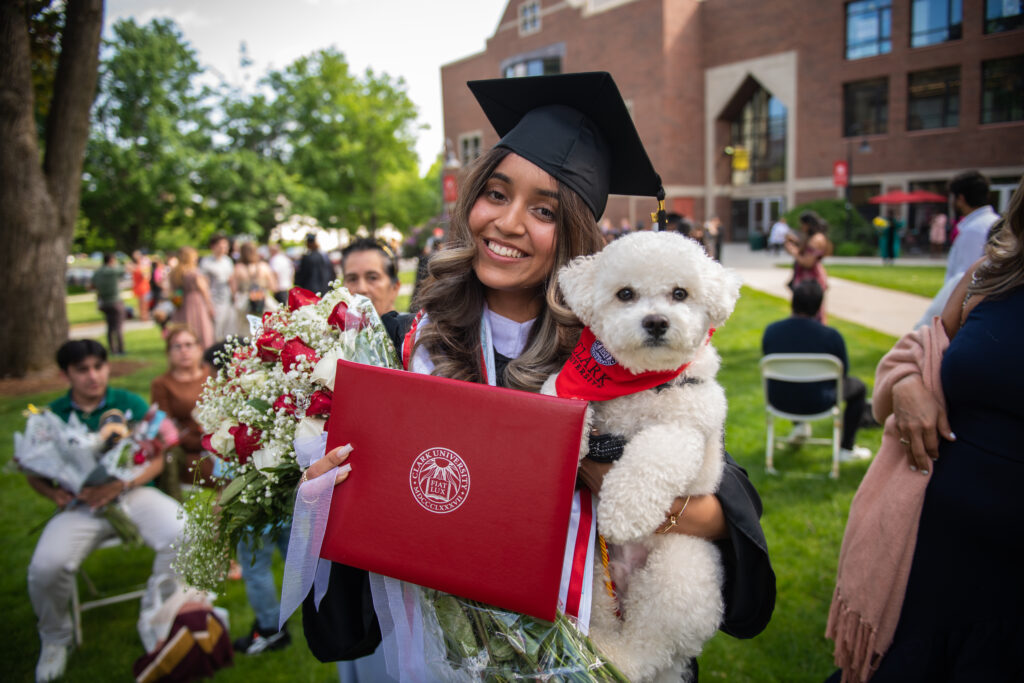‘Only you can lead the way’
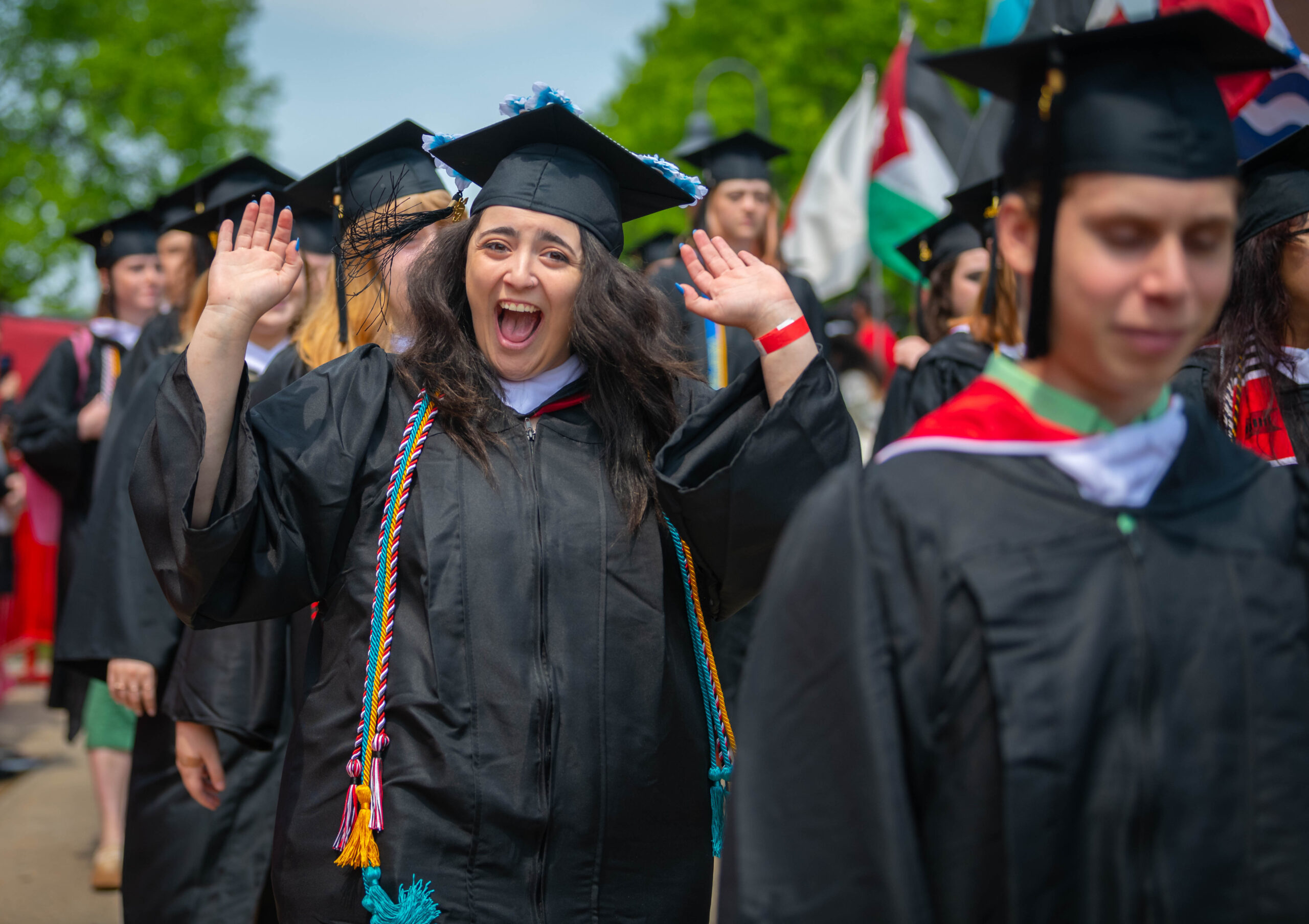
Clark University today awarded 1,300 degrees to the Class of 2023, in a ceremony where they were heralded for their accomplishments, their resilience, and their ambition.
In his remarks opening Clark’s 119th Commencement held on the Campus Green, President David B. Fithian ’87 noted that the undergraduates were impacted by the COVID-19 pandemic throughout all four years of their college careers, a collective experience that he said resulted in a more creative and tenacious learning community.
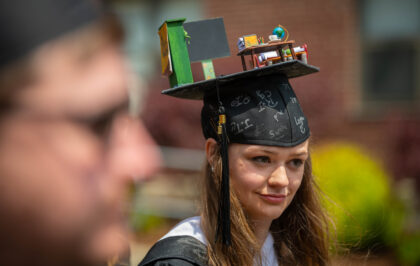
“You became experts in the evolving art of remote learning and navigating uncertainty,” Fithian said. “You experienced a uniquely challenging time in our history, and you proved to be stronger than maybe you even imagined you could be.”
Clark awarded 590 bachelor’s degrees, 681 master’s degrees, 29 doctoral degrees, and three honorary degrees. Among the graduates are 329 international students representing 24 different countries. Nine alumni who received their Clark doctoral degrees during the 2020 ceremony — which was held virtually because of COVID — joined the Class of 2023 at today’s ceremony.
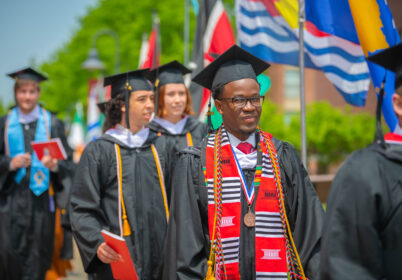
“While this may feel like an ending, it really is just the beginning. It’s the beginning of a great adventure — the rest of your life — one that only you can define and shape,” said Gary Labovich, the chair of the Board of Trustees. “I know it sounds kind of scary, but isn’t this what you have been waiting for? Take it from me, a fellow graduate from the Class of ’81: Clark has prepared you well.”
Fithian acknowledged that the graduates are beginning their post-Clark lives during a time in which evolving technology such as artificial intelligence provokes questions about what is truly real — or not.
“Today, I can tell you with authority, that the 1,303 graduates who are sitting before us today are real,” he told the audience. “They have experienced real learning, overcome real challenges, made real friendships, and are ready to pursue real ambitions that will have real impact in the world.”
The president cited many of the Class of 2023’s accomplishments including a performance at the iconic Carnegie Hall; two divisional championships in the National Esports Collegiate Conference finals; the release of a documentary film highlighting the values and voices of Brazilian immigrant communities in Massachusetts; and students’ use of GIS technology to aid recovery efforts following the devastating earthquake in Turkey and Syria.
Robert D. Putnam, Malkin Professor of Public Policy at the Harvard University John F. Kennedy School of Government and author of a number of books examining the decline of community in American Society, including “Bowling Alone” and “The Upswing,” delivered the commencement address. Putnam urged the graduates to seek new ways to bring Americans together across divides of politics, region, race, religion, ethnicity, class, and gender.
“Our country today faces unprecedented political polarization, economic inequality, social fragmentation, and moral self-centeredness, but you — collaborating with others — can reverse those trends,” he said. “Your generation didn’t cause these problems, but only you can lead the way toward a more diverse, more tolerant, more cohesive, more equal society. A society in which rather than shout or shoot at one another, we listen to one another — actually listen.”
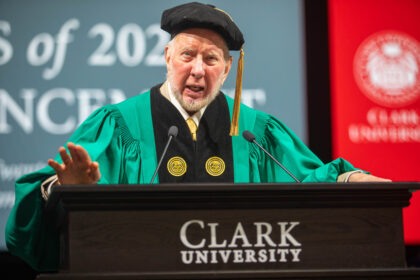
The climate of contemporary America is remarkably similar to 1900, Putnam said, a time marked by political corruption, social upheaval, and extremes of wealth and poverty. The alienation of Gilded Age Americans led to the Progressive movement, which Putnam said offers myriad lessons for this generation of graduates.
“If we are to get America out of the mess that we’re in now, it will be you and your peers who lead the way,” he said. “If you want to get ahead of the curve in reforming America, ‘go local’ —head not for Washington or Cambridge or Palo Alto, but for Raleigh or St. Paul or stay right here in Worcester.”
Honorary degrees were conferred to Putnam; Ruth Wilson Gilmore, a professor, scholar, and author considered a pioneer in the field of carceral geography and a forceful activist in the prison abolition movement; and Ronald Carter, a legendary jazz bassist, bandleader, Grammy Award winner, and distinguished professor emeritus.
Kristin Williams, chair of the Clark faculty and political science professor, told graduates that an old cliché holds true: Life isn’t a dress rehearsal.
“You will embark on many new and exciting adventures, a life ahead full of possibilities and promise,” she said. “You are privileged to have received an education in a world of nearly 8 billion people, most of whom will never have such an opportunity. With this education comes the responsibility to yourself, to your family and friends, and the world around you toward a meaningful and productive life.”
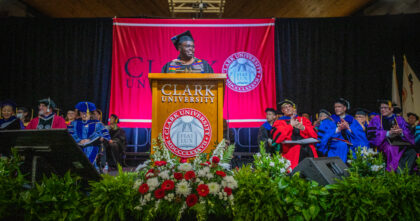
The “transformative power of education” was the theme of remarks from Idriss Laouali Abdou, MBA ’23, the graduate ceremony student speaker.
“Imagine growing up in a community where you and your friends had dreams you knew were impossible to achieve. That was the reality for me growing up in Niger,” said Abdou, who served as the vice president of the School of Management Student Council and the graduate advisor for Clark’s Caribbean and African Student Association.
“I was fortunate enough to pursue my studies in Morocco and France, and now here in the United States as a Fulbright scholar,” he said. “My personal journey is just one example of how education can change lives. As members of the Clark community, I know that each of you has a story to tell, challenges to overcome, and successes to celebrate.”
Sebastián Royo, Clark’s provost and vice president for academic affairs, told graduate students that the combination of education and persistence is the magic formula to change the world.
“Persistence is work. It is not play. It is not leisure. It is work,” he said. “Amid this moment of celebration and triumph, please remember how many times you were ready to quit and what made you persist. Stay with that memory, because that persistence, more than anything, is what will drive your success no matter what you do.”
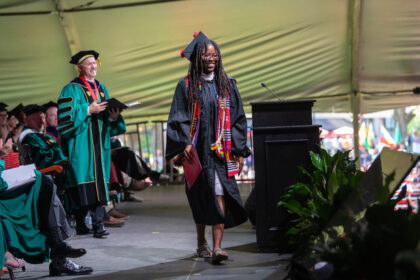
In her address to fellow undergraduates, student speaker Glory Phipps ’23, a philosophy major, compared her class’s journey to that of a rose growing from concrete, an analogy inspired by a poem written by the late rapper Tupac Shakur.
“When we first stepped onto this campus, we were illuminated with the possibilities of new talents, new hobbies, new friendships, new love,” Phipps recalled. “Sitting in the Kneller on that hot summer Thursday, we were filled with excitement about what our next four years of Clark were going to look like.” Then the pandemic arrived.
“We made it through by focusing on our passions. We fought for issues we believed in. We began to use our voices for the greater good,” said Phipps, who served on the Student Council, the Black Student Union, the Latin American Student Organization, and the Mock Trial team. “No matter how many times we were struck down we still got up.”
That perseverance, Fithian said, is why the world needs Clarkies.
“Today’s world needs minds that can understand a variety of perspectives. Today’s world needs those who value research-based and evidence-informed solutions to complex problems. Today’s world needs individuals who aren’t afraid to be themselves, and who aren’t afraid to challenge convention,” he said.
“Today’s world needs you.”

